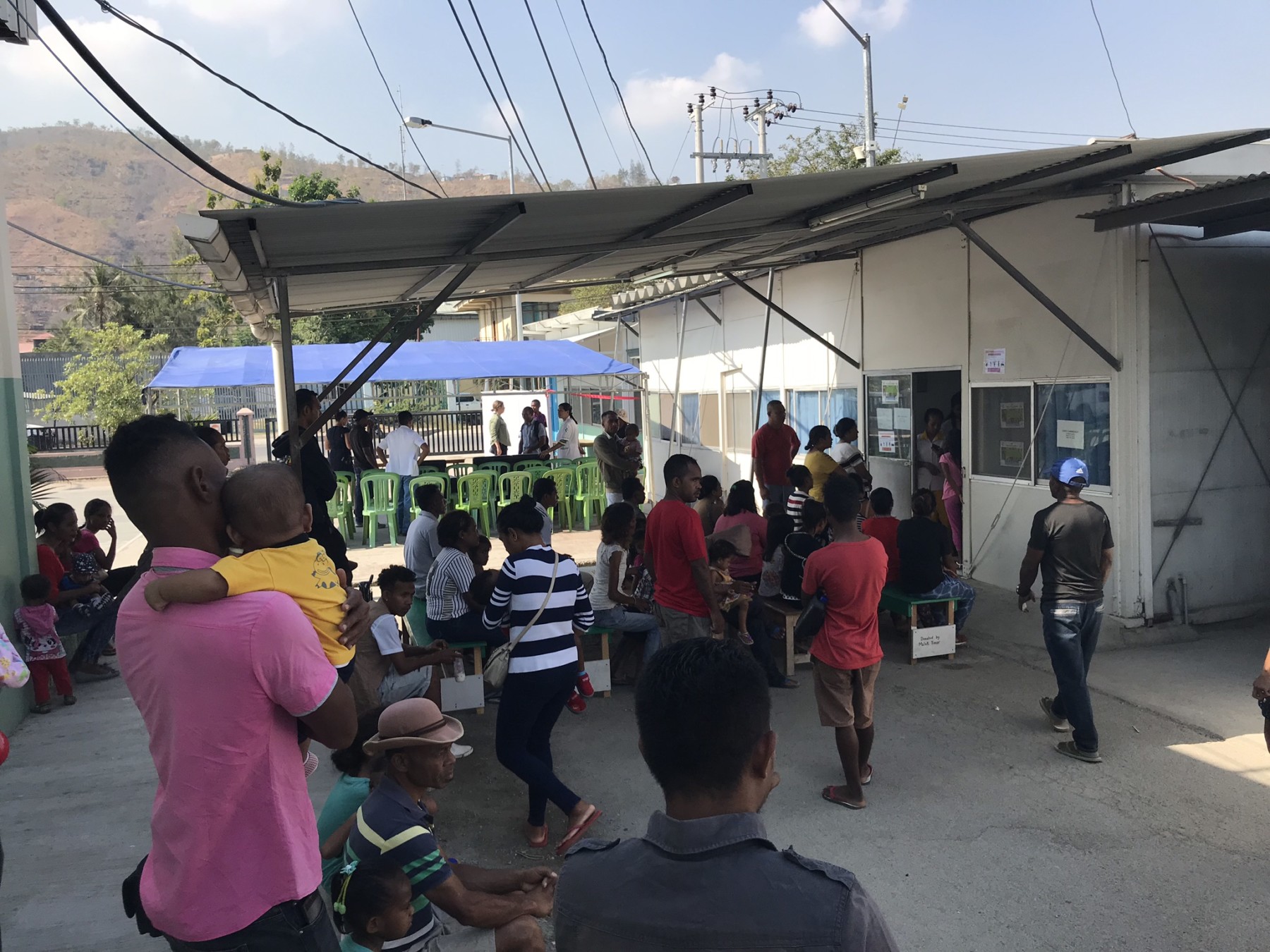Tuberculosis (TB) is a huge problem in Timor-Leste. Second to North Korea, it has the second highest TB rates per population in South-East Asia, and the seventh highest in the world. People die every day of this curable infectious disease. Families suffer prolonged sickness from TB, meaning they can’t work and earn money to feed themselves. That makes it an enormous problem. But one that we have the power to address in a cost-effective way, even in a country like Timor-Leste.
First, let me introduce you to our Maluk Timor TB Team. Our health workers: cheery Nickson, heart-warming Fatima, hard-working Joel and gentle Ano. Our Team Leader is the resilient Rofina, and our international mentor is me, Dr Lauren Chalmers. We also have our TB expert, the dedicated Dr Pete Wallis, based in Darwin, but a frequent visitor. Our worldwide sub-committee of TB experts also help guide us. But Maluk Timor cannot solve the TB problem alone; we work closely with our colleagues at the National TB Programme and partner NGOs, to help us identify the issues, and find solutions.

So what did we get up to in 2019…
Poor knowledge and stigma of TB are huge barriers to elimination. People are unaware of the symptoms of TB or fear it. A gathering is something too good for us to miss, so whilst people wait to be seen at the outpatient departments at Vera Cruz and Comoro Health Centres, our team of engaging educators tell them about TB. These are simple messages. If you have symptoms of TB, seek help. If you have TB, don’t be afraid, it can be cured with 6 months of daily tablets.
We also work closely with people that have been diagnosed with TB, with careful explanation of the disease, we can encourage them to complete their treatment course so that they can be cured. We teach their family not to be scared of them, as patients who are on treatment rapidly become non-infectious and help them encourage family and friends to get a check-up. It’s amazing how clear, non-judgemental information can go a long way.
Diagnosing TB is not always easy. It mimics other conditions such as a chest infection or common cold. Our international TB mentors work with Timorese Doctors to help improve their skills. We are believers in education through doing, mentoring side-by-side with patients. With the dispersion of these doctors to remote areas, the effect of our work should be widespread across the nation.
When a person has TB, and we do not know it, is the time when they are highly infectious to other people, particularly to those they live with. The key to reducing TB disease in the community is therefore early diagnosis and effective treatment. In 2016, Timor-Leste only found about half of the estimated TB that is in the country, we need to help find the other 50%. This is why this month, we have started a project where we will visit the households of people with TB, to educate, detect new cases, and give preventative treatment to those at high risk.
This project – called Household Contact Tracing – is an evidence-based, cost-effective approach that is endorsed by WHO Guidelines. For only $75,000 AUD, we will be able to screen the families of TB patients undertaking treatment at three of the busiest health centres in Dili. We will also be able to give their young children preventative treatment. We still have a gap of ~$50,000 to expand to other health centres and complete this programme in 2020, so please get in touch if you are able to help us.
Maluk Timor is incredibly proud to be helping the Ministry of Health’s National TB Programme in the worldwide campaign to end TB by 2035. With their support, we will be launching even more extremely promising programmes in the next few months. Stay tuned for more details and, of course, get in touch with our team if you are interested in donating to this worthy cause.

